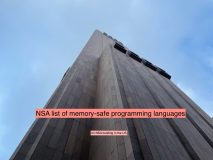What Issues Add to Housing Complexity?
Asset Tokenization Basics
The Benefits of Tokenized Real Estate
- Accessibility. First, tokenizing properties could instantly make them more accessible. If you’ve always wanted to invest in real estate, but you never had the capital to do it, you would now have the opportunity to invest in a small portion of an existing property.
If you’re buying your first home, you may be able to buy in with a lower initial down payment, and gradually accumulate tokens as shares of equity in the home.
- Higher liquidity. One of the downsides of real estate is its illiquid nature. If you decide to rebalance your portfolio, or if you suddenly need the cash, there’s no guarantee you’ll be able to sell your property.
With tokenization, you should be able to sell a portion of your equity in the property more readily.
- Rental options. Today, homeowners are increasingly turning to options that allow them to rent their property to others, whether it’s renting a room to a long-term tenant, or listing the property on a site like Airbnb.
Via asset tokenization, there could be a wider variety of options for tenants — including the ability to earn tokenized shares of the property in exchange for their recurring rental payments.
- Real-time pricing discovery. With price fluctuations in the asset token market, investors and property owners can monitor price change in real-time, rather than relying on periodic appraisals or making predictions based purely on the conditions of the surrounding neighborhood.
- Lower transaction costs. As with most forms of cryptocurrency, there’s significant potential for lower transaction costs. In the real estate world, this is extremely important, since getting a mortgage and securing a deal can be extremely costly.
- Group purchasing power. Tokenization also lends itself to group purchasing power. It’s easier than ever to buy a property with other people, which is ideal if you intend to live together.
The Challenges of Tokenized Real Estate
- Integrations with current systems. Optimizing a tokenized real estate exchange would be difficult considering current systems; for example, how would you record the deed without the help of a titling company?
- Regulatory hurdles. Countries are still trying to figure out how they want to handle cryptocurrency. New forms of tokenized assets would be even more complex to figure out.
- Price stability. As we saw with Bitcoin in 2017, when new, poorly understood forms of currency emerge, pricing tends to be a bit unstable. This can make the market unpredictable, at least for a time, following the adoption of a tokenized form of exchange.
- Consumer confidence. If this system is going to become widespread, people need to have faith in it. It would take some time and demonstrated benefits to persuade the general public to go along with it.
- Marketing. Marketing a real estate transaction is easier said than done. Between securities laws preventing or restricting general solicitation and the general difficulties of making opportunities known, marketing a real estate deal is equally important and difficult.
- Technical difficulty. There are also several technical hurdles that need to be overcome. For starters, someone needs to develop the blockchain infrastructure necessary to allow the tokenized exchange to take place.
Beyond that, consumers, homeowners, and investors would need to learn how to navigate the system, and cryptocurrency has proven challenging for average people in the past.
Conclusion
Asset tokenization could be a powerful force for the future of the real estate market, and many other markets. But for now, it seems relegated to the speculative territory.
As the world becomes more familiar with the power and functionality of the blockchain, we may gradually shift to a more digitized, accessible, and secure world.


















